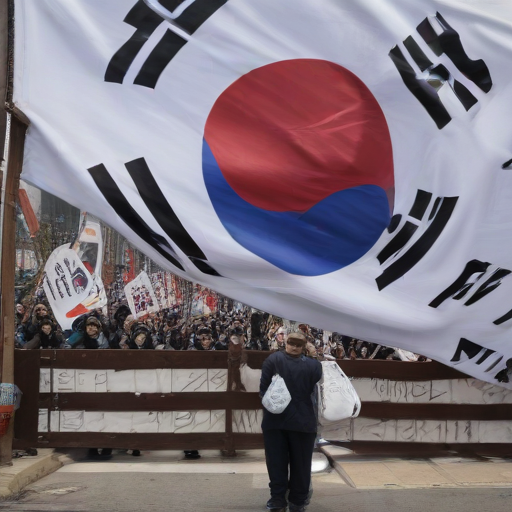In South Korea, an unexpected and intense sequence of events unfolded over a six-hour period, leading to public protests and political turmoil after President Yoon Suk Yeol announced martial law. This unprecedented decision shocked many citizens, including 19-year-old student Hwang, who found himself among a crowd of protesters in front of the National Assembly. Hwang expressed disbelief and concern, highlighting the importance of standing against such actions by the president.
The tense situation began Tuesday night when President Yoon addressed the nation, citing the need for martial law to combat “anti-state” forces associated with North Korea. With the nation grappling with budgetary issues and Yoon’s ongoing corruption scandals, his announcement triggered a restless night in Seoul, with heightened security measures outside the National Assembly. Thousands of citizens gathered outside, expressing their anger and fear of reverting to authoritarian rule, a stark reminder of South Korea’s past under military governance.
In a swift and organized response, opposition leader Lee Jae-myung urged citizens and fellow lawmakers to protest and enter the assembly, culminating in escalating tensions with police. Civilians stood their ground, blocking military vehicles and demonstrating against the martial law declaration. The atmosphere was a mixture of fear and confusion, with reports of military units prepared for action and the media scrambling to ensure coverage of events.
As panic set in, many lawmakers actively sought to gain access to the assembly, demonstrating resilience and unity. They faced significant obstacles, including physical barriers erected by security forces. Ultimately, a determined group of lawmakers managed to enter the building, barricading themselves and successfully voting to reverse the martial law order just two hours after its announcement. With all parties uniting in this vote, they demonstrated that democracy remains robust in South Korea.
This incident underscores the vitality of South Korean democracy and the populace’s commitment to safeguarding their freedom. The rapid response to President Yoon’s declaration illustrates not only the power of civic engagement but also the importance of government accountability in a democratic society. Such commitment to protest amid adversity serves as a hopeful reminder that active citizenship is essential for the continued survival and growth of democratic principles.
